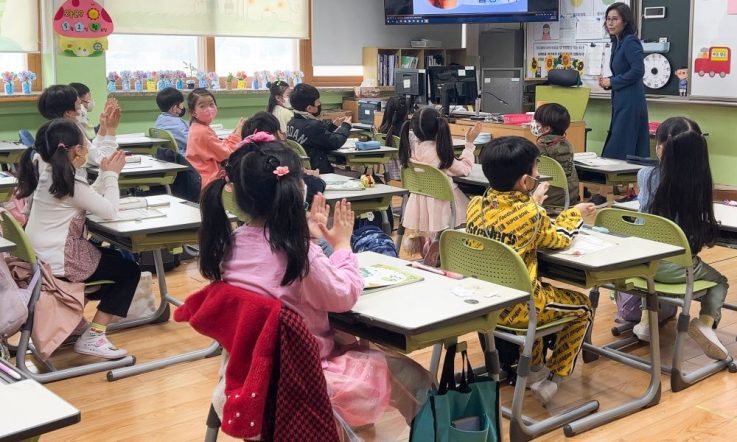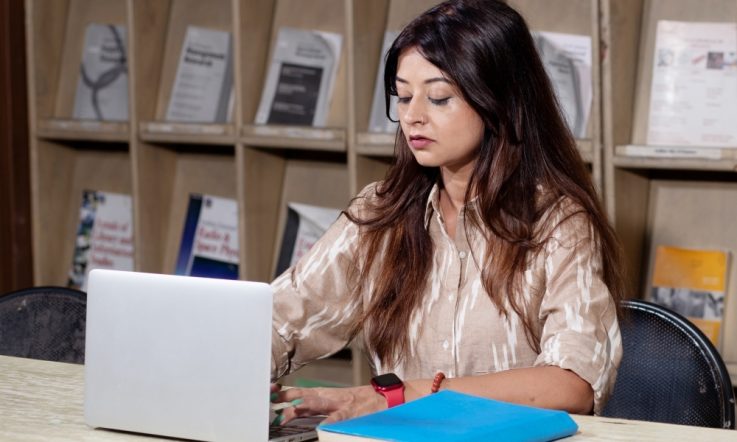What happens when teachers across different locations connect online to collaborate and learn together? During the COVID-19 pandemic Neeraja Raghavan set out to build a Learning Community of Reflective Practitioners (LCoRPs) across India. In her new book A Learning Community of Reflective Teachers: From Whispers to Resonance, the teacher-educator and Founder-Director of Thinking Teacher showcases the power of teachers debating, discussing and learning from each other. The book takes readers through the story behind the initiative, details of the development model, and a set of research papers produced from action research undertaken by LCoRPs members. In this exclusive extract for Teacher readers, Neeraja Raghavan discusses the multiple ways of engagement that exist within such a learning community.
Teachers who join a learning community such as this need not necessarily choose to carry out action research. Depending on each one’s unique location, the specific learning that each one begins by seeking (as a consumer) and the later shift from consumer to contributor may take many different forms.
Presented below is a set of possibilities, which is neither comprehensive nor exhaustive, but rather serves as an indicator of several avenues that such communities can open up for its members.
- Pedagogy: The most frequent question that pops into the mind of many a teacher is: ‘How should I go about teaching this topic?’ In a community of teachers who hail from different schools, there is a high possibility of exchange of ideas to teach topics in the prescribed curriculum. When a teacher who has tried and tested a certain method shares her learning with another, the power of the collective space to re-examine that pedagogy and even generate fresh ideas can be exploited by all members.
- Curricular Objectives: Seldom do harried teachers pause to ask why a certain topic is to be taught. That it is prescribed as part of the curriculum is justification enough, especially when there is insufficient time to transact the prescribed content to the teacher’s satisfaction. In a platform that allows one to question the importance of learning something, questions such as: ‘Why should this be taught? When is it most appropriate for a child to learn this?’ will find space for deep and collective exploration. Having asked and debated over such questions, chances are higher that the teacher will return with greater enthusiasm and energy to transact the content, by finding ways of transacting it that bring home its significance to the learner as well.
- Knowledge for practice: When a teacher is confronted with the challenge of teaching something that she is herself not fully conversant with, there are many impediments to her successful transaction of that content. First, the widely prevalent expectation that most people have of a teacher is that she should know her subject matter well. While this is definitely a reasonable expectation, there could well be gaps in anyone’s grasp of a subject for many reasons, not the least of which could be that the teacher herself was not taught that subject well enough when she was a student. This inhibits the teacher from admitting that she needs help. Second, even if the teacher manages to acknowledge such a need, there are not enough structured spaces within a school where a teacher can enrich her own knowledge satisfactorily. In a learning community of teachers, there is room for re-learning a subject with the help of others who may have a better grasp of it. Especially if the community comprises teachers across institutions, the obstacle of professional rivalry is minimal, if not totally absent.
- Classroom Management: This is one area that can never have enough discourse, as there are always newer and more complex challenges every day for a teacher. Teachers who can bring to the table their own dilemmas in managing diverse learners are likely to receive reassurance from their colleagues across schools of the universality of such issues. They may well learn some new ways of tackling issues that teachers seldom find time otherwise to focus on deeply, as ‘covering the syllabus’ takes precedence in most cases.
- Material Development: Teachers are almost always in need of innovative materials and resources that will add vibrancy to their transaction of lessons. Many minds working together to design and develop novel resources will seldom fail – whereas a lone teacher struggling to find the time to make that lively teaching aid may give up. This is often a burning need for many teachers and the support that a group of teachers working towards this goal provides is immeasurable.
- Overarching issues: How often do teachers ask and discuss questions that go to the very core of education? Questions such as ‘What is the purpose of education?’ or ‘Is schooling the only way to educate a child?’ need to be asked especially by those who are directly in contact with school goers on a daily basis. This platform can serve to draw out such questions and offer a relaxed space for exploration, sometimes resulting in a teacher’s greater conviction of the worth of her profession.
Exploratory spaces like these can benefit those who value such reflection.
A Learning Community Of Reflective Teachers: From Whispers to Resonance, Edited by Neeraja Raghavan, is published by Routledge and available to purchase via the link.



